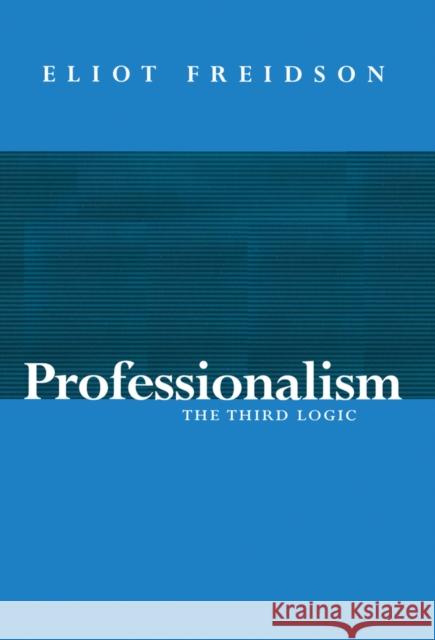Professionalism : The Third Logic » książka
Professionalism : The Third Logic
ISBN-13: 9780745603315 / Angielski / Miękka / 2001 / 264 str.
Eliot Freidson has written a systematic account of professionalism as a method of organizing work. In ideal-typical professionalism, specialized workers control their own work, unlike the free market, where consumers are in command, and bureaucracy, where managers dominate. He shows how each method has its own logic, encouraging different kinds of knowledge, jobs, work careers, educational institutions and ideologies. Then he discusses the way historic and national variations in state policy and professional organization, as well as the demands of different kinds of work, influence the strength of professionalism. In appraising the embattled status of professionalism today, Freidson discusses the ideologically inspired charges of monopoly, credentialism and elitism made by both economists and populists. He concludes that professional institutions are too useful to capital and the state to be seriously weakened by such charges. What they do weaken is the ethical independence of professions, their ability to resist use of their specialized knowledge for maximizing profit and efficiency and to insist on providing its benefits to all in need.











